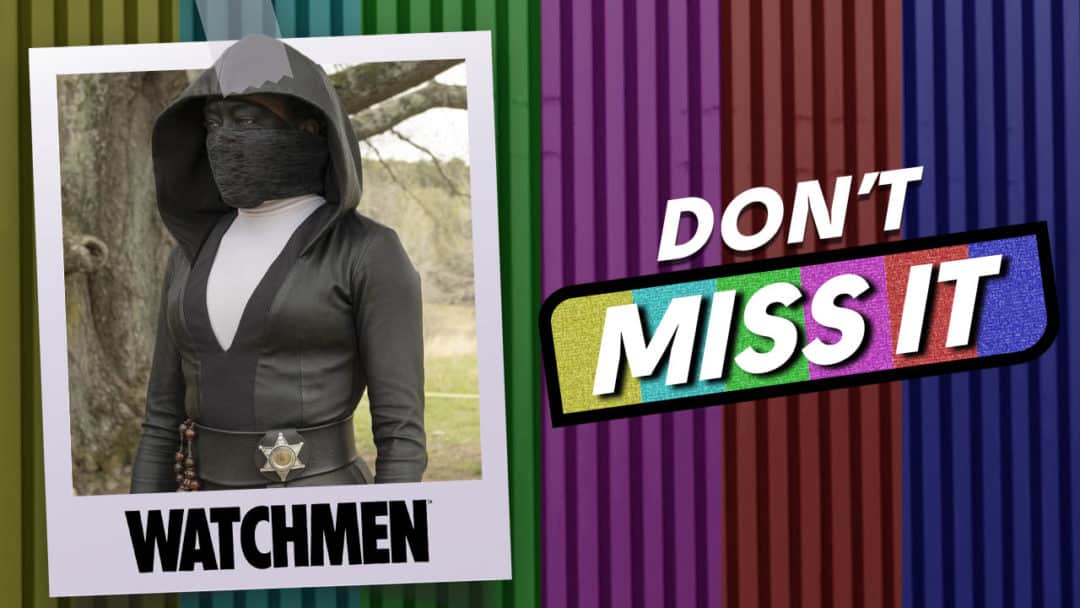Upon the premiere of Watchmen in late October, the show almost seemed a taunt to those “best of year” lists that critics compile annually, arriving perilously close to the deadline. However, upon its conclusion in mid-December, it felt more like it was goading those “best of decade” celebrations.
Alan Moore and Dave Gibbons’ Watchmen remains a classic of the comic book medium. It was the only piece of graphic literature included in Time’s list of the 100 greatest novels published between 1923 and 2005. Watchmen towers over both the comics medium and the superhero genre, and it is still a go-to recommendation for new readers more than 30 years after it released.
Although, Alan Moore has a troubled relationship with both publisher DC and attempted adaptations of his work. The legacy of Watchmen remains contentious, both in how it has shaped the superhero genre and also in how other artists have attempted to approach it for the purpose of adaptation.

Watchmen poses a daunting challenge to anyone who would try to build, as Zack Snyder learned with his cinematic adaptation in 2009. In recent years, creators have taken to approaching Watchmen at an angle. DC published a largely underwhelming line of Before Watchmen comics in 2012 and offered up Doomsday Clock as a sequel overlapping with the HBO series.
HBO’s Watchmen is a sequel to the comic. It shifts the action from New York to Tulsa in Oklahoma, the bulk of the series unfolding 33 years after the events depicted in the comic. The series introduces new characters like Angela Abar (Regina King) and Chief Judd Crawford (Don Johnson), along with established characters like Laurie Blake (Jean Smart) or Adrian Veidt (Jeremy Irons).
Showrunner Damon Lindelof has described his adaptation as a “remix” of the classic story for the contemporary world. Understanding that the source material was a product of its time, Lindelof shifts away from the comic’s focus on nuclear Armageddon to a more modern source of existential anxiety. The core evil nestled at the heart of the show is white supremacy.
Despite updating these aspects of the concept to better reflect the mood of 21st century America, Watchmen draws heavily from the comic. There are countless in-jokes scattered across the nine episodes, but Lindelof borrows a lot of structure from the book, punctuating the series with both an allegorical subplot set on another world and character-focused flashback episodes.

The result is one of the most endearingly odd pieces of prime-time prestige television ever produced. Watchmen is a television series that routinely features precipitation in the form of baby squid, gigantic sex toys themed after the world’s only truly superpowered superhero, and memories shared via pills with the assistant of a comatose elephant.
Watchmen owes a lot to Lindelof’s work on the similarly ambitious and weird television show The Leftovers, feeling like an extension of the breakout surrealist episodes “International Assassin” and “The Most Powerful Man in the World (and His Identical Twin Brother).” Like The Leftovers, Watchmen uses its genre premise to grapple with human concerns in a heightened framework.
Watchmen is comfortably among the very best shows of the year, which is no small accomplishment this year. It was heartening to see the series grow its numbers across the season, becoming HBO’s biggest new show of the year and their strongest first season since Big Little Lies. As with shows like Succession, it appears that Watchmen was a (deserved) word-of-mouth hit.
Lindelof has been coy about the possibility of a second season, and given that final episode it is easy to understand why. The first season of Watchmen feels like a complete and self-contained narrative, a story that has been fully (and beautifully) realized. Now that the whole series is complete and available, it can be truly appreciated in its entirety. Watchmen is as intricate as clockwork.
The entire first season of Watchmen is now available on streaming services and on HBO Go.






Published: Dec 22, 2019 01:00 pm